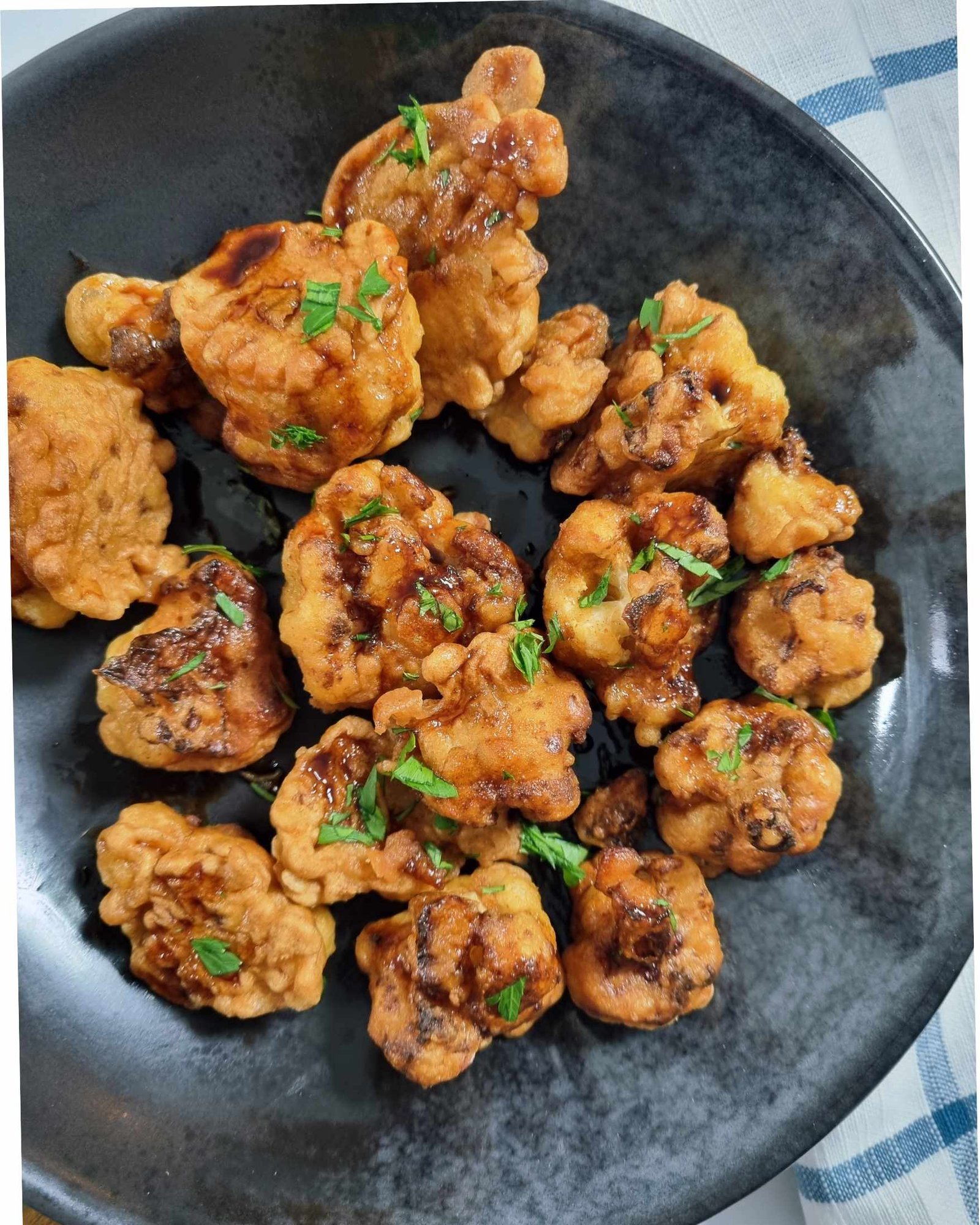
Newsletter Subscribe
Enter your email address below and subscribe to our newsletter

Enter your email address below and subscribe to our newsletter
If you’ve ever visited an Asian-fusion restaurant that focuses on plant-based meals, then we’re certain that you’ve come across Kung Pao Cauliflower. This dish is considered the vegetarian version of the traditional Chinese dish, Kung Pao Chicken. Around the world, ‘Kung Pao dishes’ are known for their bold, sweet, and spicy flavours.
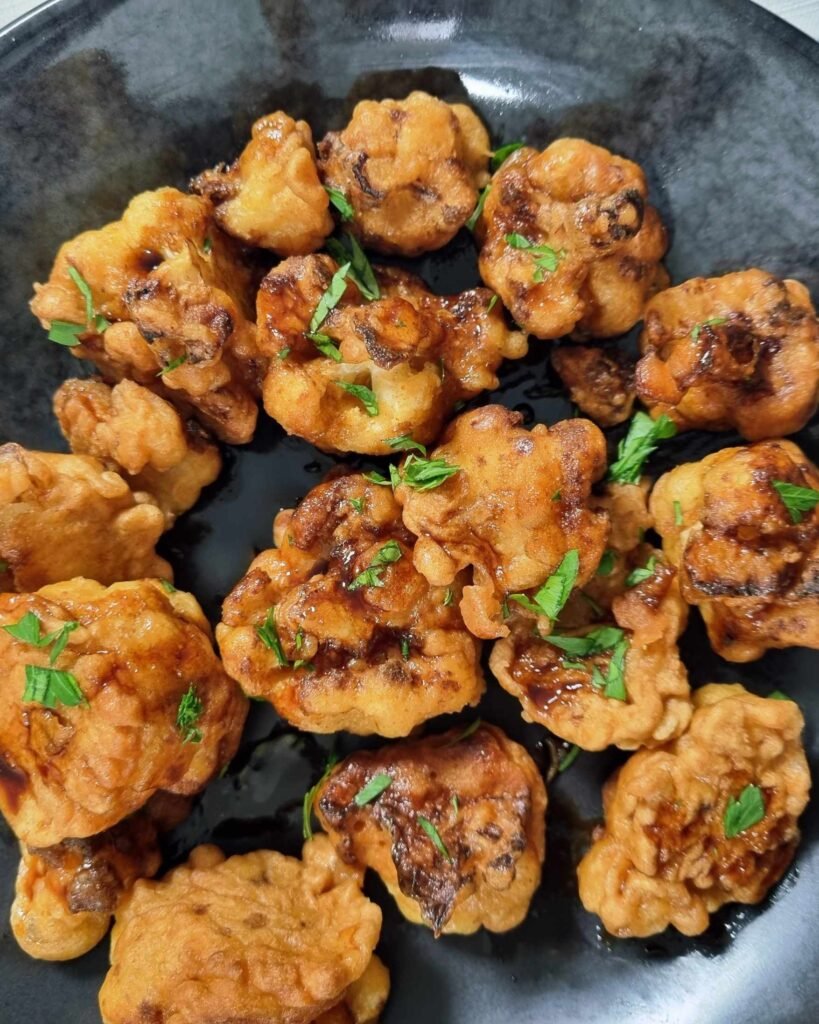
This dish originated from the Sichuan province of China. The use of cauliflower was created to maintain the dish’s signature taste and texture while also offering a lighter and more satisfying experience. Many Chinese people eat Kung Pao cauliflower as a side dish alongside their main meals.
Cauliflower, All purpose flour, Water, Egg, Paprika. Celery salt, White pepper powder, Ginger powder, Garlic powder, Sesame seed oil, Soy sauce, Hoisin sauce, Oyster sauce, Brown sugar, Rice vinegar.
Choose a small to medium-sized cauliflower for this dish. This recipe serves as a side-dish. All-purpose flour provides a crispy coating for the recipe. Ginger powder and garlic powder adds a savoury flavour to the cauliflower. Soy sauce, hoisin sauce, and oyster sauce add an umami flavour to the dish. Brown sugar adds sweetness. Rice flour helps to thicken the marinade. Sesame seed oil adds nuttiness, although you could also use peanut oil.
Cut off the florets from the main stem, and slice them into more or less the exact sizes. This is to ensure that all the cauliflower florets will cook evenly and to prevent over- or undercooking some florets. Also, make use of the stem by cutting it into half-inch cubes, and cook it just like the florets. The cauliflower stems are rich in nutrition and shouldn’t be thrown away.
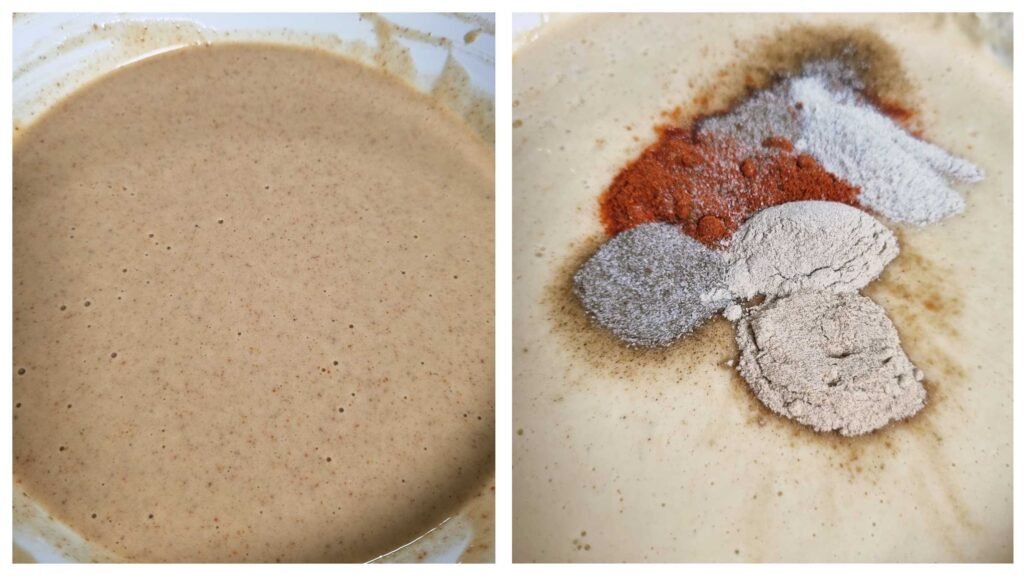
Prepare a large mixing bowl and add the all-purpose flour, water, and egg. Whisk the egg until the batter becomes runny and uniform. Then, add the spices like garlic powder, ginger powder, paprika, ground white pepper, and celery salt. Thereafter, stir the batter to mix everything.
Add the cauliflower florets to the batter mixture. Then, toss from bottom up and thoroughly coat all the surfaces of the florets. Ensure that each floret is filled with a generous amount of batter when placed in the frying pan for a more crunchy texture and delicious flavour.
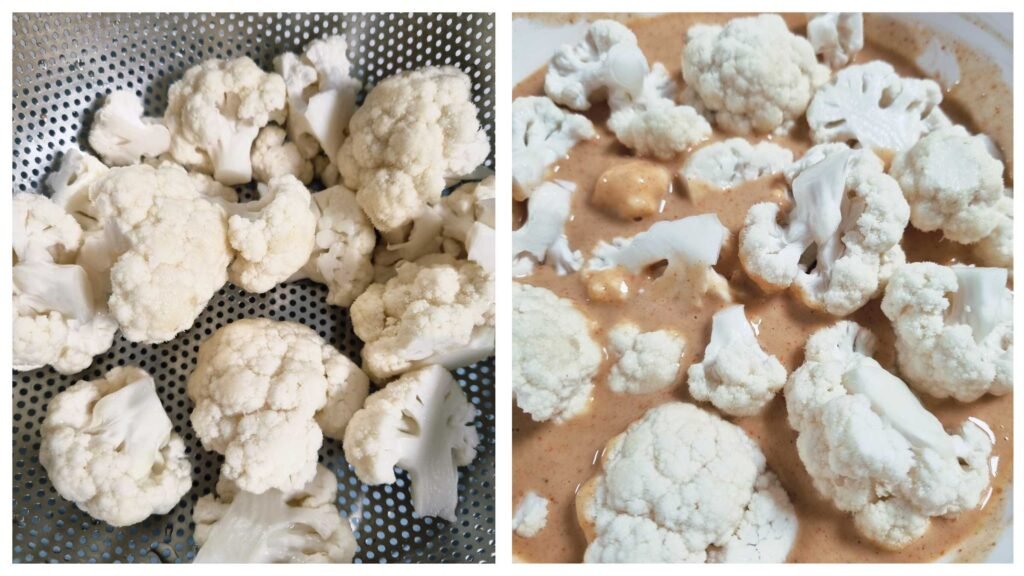
Add the sunflower oil to a cool pan or skillet. Then, adjust the temperature to medium-low and wait for it to reach 175ºC / 350ºF, which you will know by dropping a tiny batter liquid into the oil. See if it rises back up to the surface within three seconds. If it does, it is at the right temperature to start frying the cauliflowers.
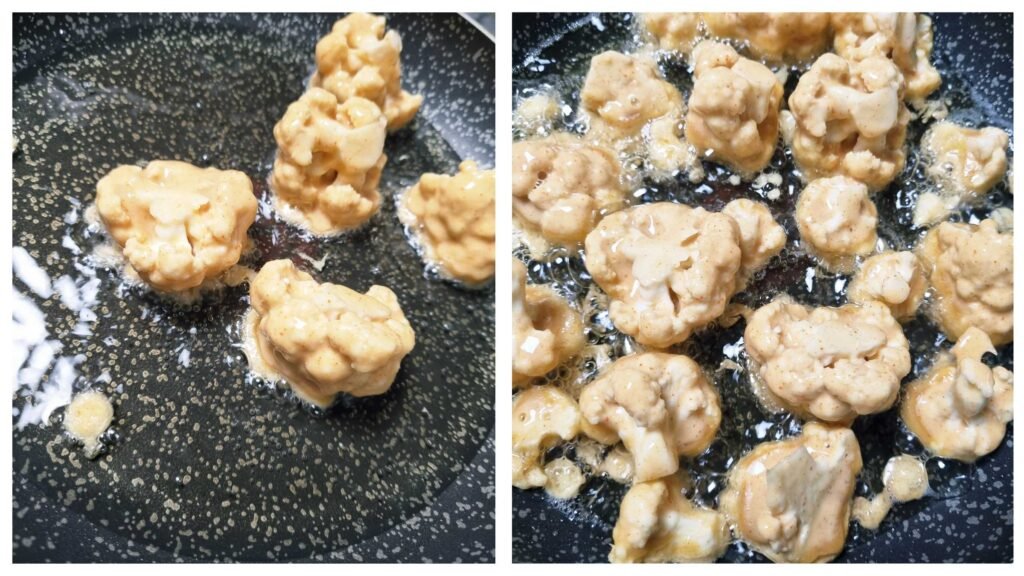
Place the cauliflowers in the pan and fry for two minutes on each side. Make sure to leave some space between the cauliflowers when placing them on the pan to prevent them from sticking to each other.
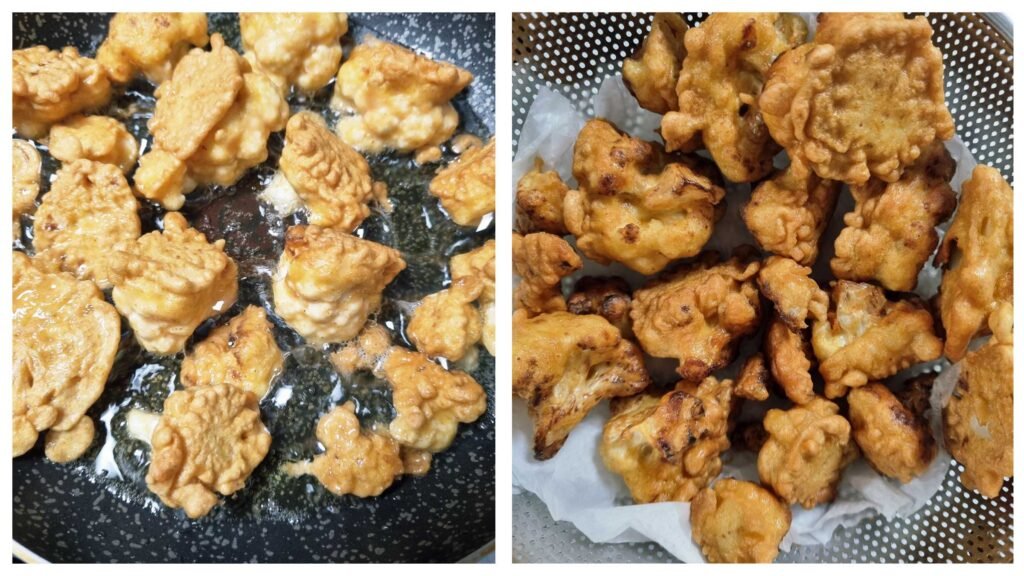
Flip the cauliflowers to the side that needs to be cooked. Once the frying is done, transfer the cauliflowers to a strainer or a colander with a kitchen towel. The kitchen towel will absorb excess oil, and the strainer allows the fried cauliflowers to become crispy.
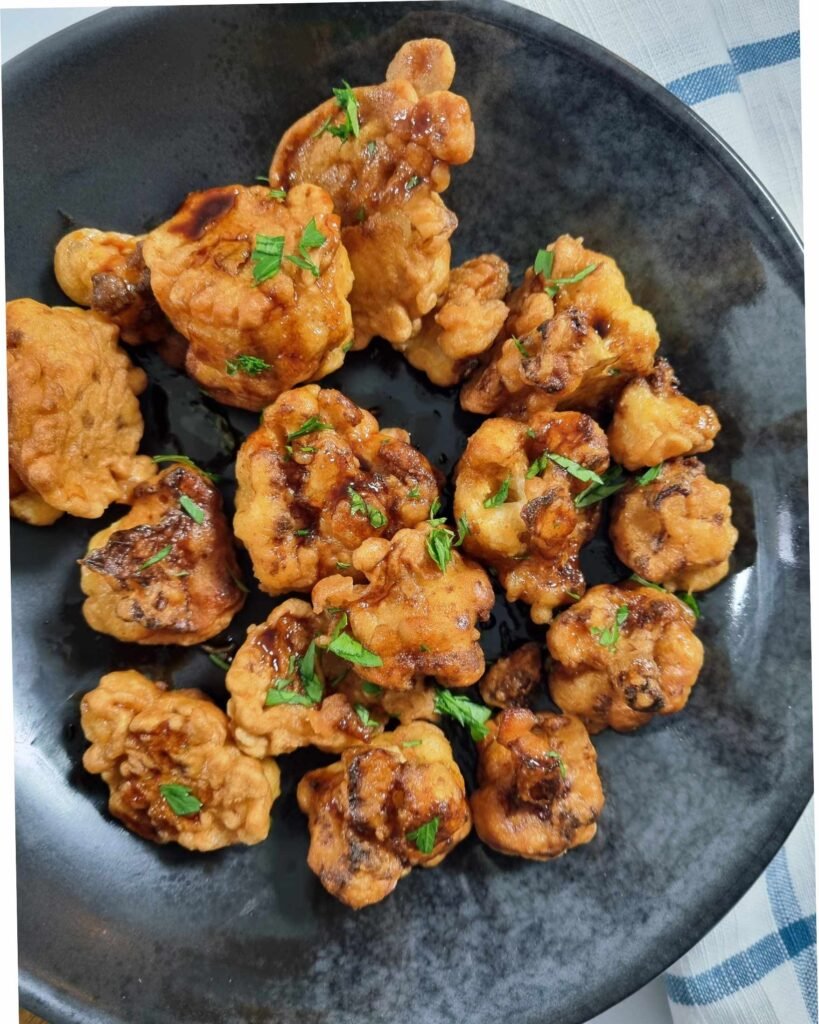
Enjoy the crispy and delicious Kung Pao cauliflower with its accompanying sauce. If available, you can throw in a few sichuan peppercorns, which add spicy, floral, and citrus notes. Coriander seeds and black peppercorns can serve as an alternative to the sichuan peppercorns.
Cauliflower is a perfect substitute for chicken, especially if you’re looking for a vegetarian dish. It is high in flavour. This recipe is versatile and can be prepared in three different ways. First, you can fry the cauliflower and create a crispy exterior on the surface; thereafter, drizzle the sauce on it. Secondly, you can roast it in the oven with the sauce drenched in it, which will give it a nutty taste. If you’re very busy, then roasting the cauliflower in the oven will be the most suitable option. Marinate the cauliflower with the marinade and bake it in the oven for thirty-five minutes at 180 °C.
Thirdly, you can stir-fry the easy route in the wok. Stir-frying is an easy and reliable technique for fast cooking. If the heat is high, the cauliflower will crisp up beautifully. Each method offers a distinct perspective on this dish.
The perfect side for sweet and spicy kung pao cauliflower is the steamed white, or jasmine, rice. Fried rice is also a great option to enjoy the kung pao cauliflower with, along with pickled vegetables like carrots, radish, or cucumbers.
Allow the kung pao cauliflower to cool to room temperature before storing it in the fridge. Once cooled, transfer the cauliflower to an airtight container. The cauliflower can be stored in the refrigerator up to three days; however, it is best to consume it the next day, as the batter will become soft and eventually soggy by absorbing moisture. Freezing the kung pao cauliflower is not recommended, as the texture and flavour will be altered during the process of freezing and thawing.
Reheating the kung pao cauliflower can be done by using the microwave or stovetop. Using the microwave will be quick, easy, and convenient for one portion; however, the batter may become soft or soggy after reheating. Using the stovetop takes about five to seven minutes to reheat the cauliflowers; however, the texture of the batter will be crispy.
